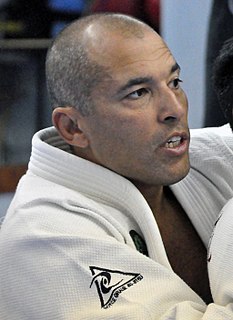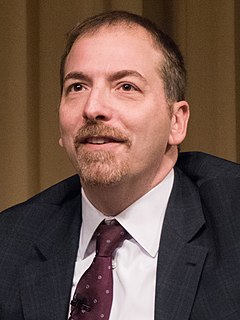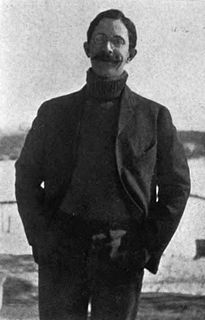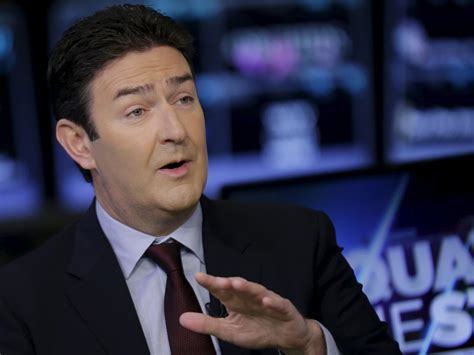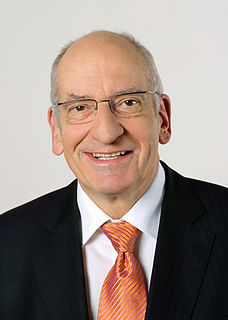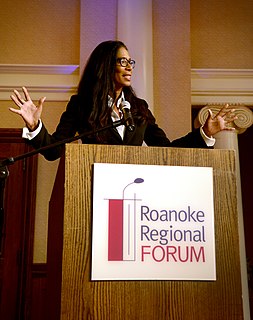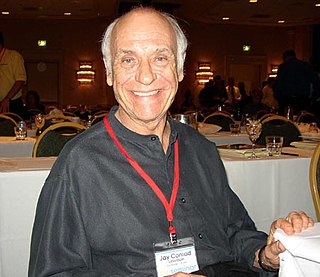Top 1200 Marketing Strategy Quotes & Sayings - Page 5
Explore popular Marketing Strategy quotes.
Last updated on April 20, 2025.
Marketing by interrupting people isn’t cost-effective anymore. You can’t afford to seek out people and send them unwanted marketing messages, in large groups, and hope that some will send you money. Instead, the future belongs to marketers who establish a foundation and process where interested people can market to each other. Ignite consumer networks and then get out of the way and let them talk.
My strategy is pretty straightforward, which is to go after the bad guys, to make sure we do our very best to interrupt them, to - to kill them, to take them out of the picture. But my strategy is broader than that. That's - that's important, of course. But the key that we're going to have to pursue is a - is a pathway to get the Muslim world to be able to reject extremism on its own.
What business strategy is all about-what distinguishes it from all other kinds of business planning-is, in a word, competitive advantage. Without competitors there would be no need for strategy, for the sole purpose of strategic planning is to enable the company to gain, as efficiently as possible, a sustainable edge over its competitors.
Strategy is a system of makeshifts. Is is more than a science. It is bringing knowledge to bear on practical life, the further elaboration of an original guiding idea under constantly changing circumstances. It is the art of acting under the pressure of the most demanding conditions...That is why general principles, rules derived from them, and systems based on these rules cannot possibly have any value for strategy.
People sometimes talk about me as being a brand, having a strategy and whatever else. I wish. Seriously. I wish I had it together enough to have a strategy. But it's so instinctual. It usually comes down to two things: the person I'm working with - the director is really important to me - and a line in a script.
I still believe that for good business analysts a concentrated portfolio is a good strategy combined with a long term horizon. Once again, the secret to success in following the formula strategy is patience, a quality in short supply for both professionals and individual investors alike. I think investors should have a large portion of their assets in equities over time.
A real strategy is a coherent mix of policy and action designed to overcome a significant challenge. So a sensible employee might indeed say that they have no idea what the organization's strategy is - because it seems to have none. Senior managers' so-called "strategies" are heavy with aspirations and goals, but light on how resources and strengths will be combined to achieve them.
I see no other conceivable strategy for the achievement of liberty than political action. Religious or philosophical conversion of each man and woman is simply not going to work; that strategy ignores the problem of power, the fact that millions of people have a vested interest in statism and are not likely to give it up.... Education in liberty is of course vital, but it is not enough; action must also be taken to roll back the State.
When you're in operations, the best thing you can do at the top level is get the strategy right. You have to get the big ideas right, you have to determine what is the policy, what is the level of effort you're willing to commit to it? And then you delegate to those who have to execute that strategy to the appropriate level. What's the appropriate level? It's the level where people are trained and equipped to take decisions so we move swiftly against the enemy.
I like guys who know how to implement a strategy. The ones who make a fight look easy. But there's no easy fight, even if you win in 30 seconds, that only means you were able to execute your strategy correctly and induced your opponent to make a mistake. Those are the champions. That's why they are the champions.
A Democratic strategy firm is trying to help them out. They did a new poll from - it`s a global strategy group. And they did a poll of both base Democrats and swing voting Democrats, trying to determine how to best harness this energy [ of leftist anger]. And maybe more importantly, how to message it.
A good strategy focuses efforts on a target, and that focus can only be achieved by not diffusing energy in other directions - that is the meaning of Michael Porter's dictum of "choosing what not to do." At the same time, a good strategy chooses the right target to focus on, not wasting the focus of energy on a target that cannot be affected or that is unimportant - that is the meaning of Drucker's distinction between efficiency and effectiveness.
It should be the aim of grand strategy to discover and pierce the Achilles' heel of the opposing government's power to make war. Strategy, in turn, should seek to penetrate a joint in the harness of the opposing forces. To apply one's strength where the opponent is strong weakens oneself disproportionately to the effect attained. To strike with strong effect, one must strike at weakness.
The Encyclopedia Galactica defines a robot as a mechanical apparatus designed to do the work of a man. The marketing division of the Sirius Cybernetics Corporation defines a robot as "Your Plastic Pal Who's Fun to Be With. The Hitchhiker's Guide to the Galaxy defines the marketing devision of the Sirius Cybernetic Corporation as "a bunch of mindless jerks who'll be the first against the wall when the revolution comes.
Fear and hope remain the same; therefore the study of the psychology of speculators is as valuable as it ever was. Weapons change, but strategy remains strategy, on the New York Stock Exchange as on the battlefield. I think the clearest summing up of the whole thing was expressed by Thomas F. Woodlock when he declared: “The principles of successful stock speculation are based on the supposition that people will continue in the future to make the mistakes that they have made in the past.”
Give serious thought to why your company should care about your strategy. Specifically, find problems that the board wants to be solved. What are senior managers scared of? Part of becoming a credible strategic thinker is learning effective approaches to selling ideas for your situation. You’ll know that you’re getting better at selling (or pitching) strategy when managers start coming to you when there is strategic thinking to be done.
The opportunities and threats existing in any situation always exceed the resources needed to exploit the opportunities or avoid the threats. Thus, strategy is essentially a problem of allocating resources. If strategy is to be successful, it must allocate superior resources against a decisive opportunity.
My grandma used to make syrup for us because we couldn't afford it and I just played around with her recipe. I made strawberry syrup and that didn't really work out but I made strawberry-vanilla and that sold. Then I just went out and took marketing classes, went to seminars, learned about marketing a product and striking deals. It ended up taking orders of $1.5 million.
Just in the past couple of years, there's been pushback against some of that marketing, as parents have gotten really upset. Now we're seeing Coke and Pepsi kind of shape-shifting. Instead of doing these very explicit marketing deals, they are getting into schools in much more hidden ways - things like My Coke Rewards, where they encourage schools to push their student body to purchase Coke products, in exchange for points that go toward various products for the school. It's a way for these companies to get in front of kids, presented as a form of charity.
I've made a point of trying not to play the same part and of moving between theatre and film and TV. The idea is that by the time you come back, you have been away for a year, and people have forgotten you. If you like having time off, which I do, that's a good career strategy. Or at least, it's my strategy to keep my head together.
Marketing is your battle plan for the sales team - it's about defining the landscape. Marketing is doing cohort analysis and understanding exactly what possible customers are out there. It's understanding not only which customers will respond to what messages, but also how customers will become clients if you include certain product features.
Often in companies, you'll see tensions between sales and marketing. Sales people will want to give discounts to clients because they often get paid a commission based on how much they sell. So they're always pushing to give discounts because that will increase sales. Marketing, however, is judged by overall profitability.
The idea that relationships are not a strategy is potent; and the sad commentary proceeds to say that often relationships are seen as a strategy, a means to accomplish great things - except love and relationship are not what is really wanted. We want to appear relational so people will like what we have to offer. It's the difference between wanting a good marriage and loving the person you married.
People believe that management consultants are mostly useless parasites. Up until about 1980 it was consultants more than anyone else who came up with the critical concepts behind strategy. The history of strategy suggests there are lots of things consultants can do for a company that the company can't typically do for itself.
If you look at the expenses of a great pharmaceutical company, they pay between about 10 to 15 percent of their expenses for research, but they use 30 to 40 percent of their incomes for marketing and promotion. It is not completely wrong that they spend so much, but it is not correct to say that there is a direct connection between the price of drugs and the cost of research. It could be more between the cost of marketing and the cost of the drugs.
The sheer novelty and glamor of the Western diet, with its seventeen thousand new food products every year and the marketing power - thirty-two billion dollars a year - used to sell us those products, has overwhelmed the force of tradition and left us where we now find ourselves: relying on science and journalism and government and marketing to help us decide what to eat.
Ultimately, what separates a winner from a loser at the grandmaster level is the willingness to do the unthinkable. A brilliant strategy is, certainly, a matter of intelligence, but intelligence without audaciousness is not enough. Given the opportunity, I must have the guts to explode the game, to upend my opponent's thinking and, in so doing, unnerve him. So it is in business: One does not succeed by sticking to convention. When your opponent can easily anticipate every move you make, your strategy deteriorates and becomes commoditized.
Somebody asked me 'what's the job of a CEO', and there's a number of things a CEO does. What you mostly do is articulate the vision, develop the strategy, and you gotta hire people to fit the culture. If you do those three things, you basically have a company. And that company will hopefully be successful, if you have the right vision, the right strategy, and good people.
When it comes to fully understanding how to strategically move all the pieces on the marketing and distribution chess board on a worldwide basis, Jeff Blake is always thinking two moves ahead and that gives Sony a true competitive edge. He is the studio's secret weapon and while he would be the first to credit his fantastic sales and marketing team, there are few executives here that deserve more credit for our successes during the past several years than Jeff.
The reason to go public is that it is a massive branding, marketing, credibility, trust-building exercise with your customers, and then it allows you to consolidate power and scale and market share. Do we want to be a huge company with a huge impact? If the answer to that is yes, the only way that that happens is by going public. It is effectively a branding event that catalyzes interest. It helps with recruiting, it helps with marketing, it helps with sales. It just helps on many dimensions. I think it's basically a litmus test for the CEO's ambition.
I worry more about the marketing that's taken hold since the 70s. The Jazz era, the Swing era, those were huge. Entire decades were named for music. In the 1940s - after World War II - changes in taxation, ballrooms closing, people moving to the suburbs, and the onset of target marketing and the confusion of commerce with art caused some things to happen as a result that have taken us away from jazz and what jazz offers us.
Marketing automation is the technology that propels your business into a new era of relationship based marketing with quantifiable results. When powerful technology meets effective implementation and internal process management, your company will soon find itself on a journey that leads to new heights of business success.
I'm going to be bringing people into the public diplomacy function of the department who are going to change from just selling us in the old USIA way to really branding foreign policy, branding the department, marketing the department, marketing American values to the world and not just putting out pamphlets.
Many times when people have a vision, they think in terms of a big vision - I want to take my city for Christ. But the problem with many pastors and this type of vision is this: they haven't developed the strategy to fulfill that vision. A pastor preaches a dream or vision to his/her people, they get excited for a week, a month, or a couple of months, but there is no strategy, planning, or process to fulfill that vision.
One of the problems many leaders report is a gap between strategy and execution. Usually this "gap" arises because the so-called "strategy" is a set of financial performance goals, not an approach to overcoming challenges. The two key ways to narrow this gap are to avoid bad strategies that fail to explain how to proceed and to establish a proximate objective - something which can be accomplished and which will open the door to further progress.
But the U.S. has to be careful. If our strategy depends on Sunnis doing the fighting to clear Mosul and Ramadi - and, as near as I can tell, that is the strategy - then you have to be careful that Sunnis don't perceive the U.S. to be operating arm in arm with Iran or with Iranian-backed Shiite militias that Abadi - Prime Minister Abadi is using in Iraq, so that, in effect, we're fronting for Iran.
I wanted to be an industrial designer, so I went to business school for that, and I then went on to marketing at Interpublic Group of Companies, which was one of the first organizations to actually think about brand marketing. I worked on Coca Cola's account, and then I was recruited by Pepsi, and I ended up being Pepsi's first MBA. I was called the High Wire Act because I was in my 20s and I was given jobs of increasing responsibility that I was totally unqualified for.
The strategy we've adopted precludes our following standard diversification dogma. Many pundits would therefore say the strategy must be riskier than that employed by more conventional investors. We disagree. We believe that a policy of portfolio concentration may well decrease risk if it raises, as it should, both the intensity with which an investor thinks about a business and the comfort-level he must feel with its economic characteristics before buying into it.
When you view marketing from the vantage point of the guerrilla, you realize that it’s your opportunity to help your prospects and customers succeed. They want to succeed at earning more money, building their company, losing weight, attracting a mate, becoming more fit, or quitting smoking. You can help them. You can show them how to achieve their goal. Marketing is not about you. It’s about them. I hope you never forget that.










